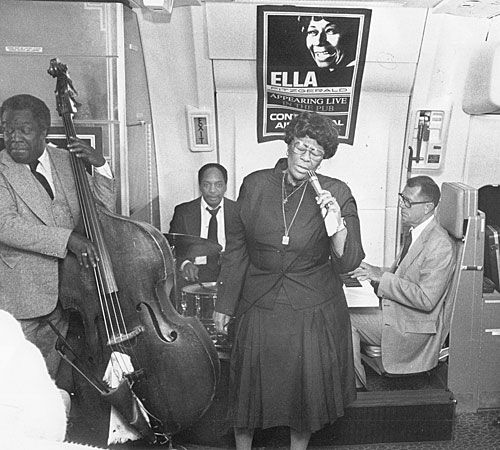 |
|
 |
|
During one memorable plane trip, Smith, Keter Betts (bass) and Bobby Durham (drums) backed Ella Fitsgerald during an impromptu performance while flying at 35,000 feet (shown in the photo above).
I'm therefore certain the following document is incomplete ... but I'm also confident that it's an excellent start. Fans are encouraged to contact me with supplemental information, but with a strong caveat: Any suggested album entries must be well-documented: ideally because you actually own the album, or can cite a relevant passage from some jazz great's biography, and so forth.
This need for care is essential, for several reasons. Much of the information below was sourced (or verified) at five massive databases: Richard Di Filippo's frankly awesome Enciclopedia Del Jazz; the Jazz Discography Project, handled by Nobuaki Togashi, Kohji Matsubayashi and Masayuki Hatta; discogs; jazzdiscogcorner; and allmusic.com. Unfortunately, they sometimes contradict each other; on several occasions, I had to (reluctantly) delete an entry, due to uncertainty.
Smaller, artist-specific databases also were quite helpful. Pat Boone's entry at Praguefrank's Country Music Discographies, for example, answered several questions. God bless the Internet's fan base!
UPDATE 3/31/22: Many, many thanks to fellow Paul Smith fan Harry, from across the pond, who shared the frankly staggering Capitol Label Discography, compiled by Michel Ruppli, Bill Daniels, Ed Novitsky and Michael Cuscuna. It led to the addition of dozens more entries, while also clearing up some points of confusion.
As I've mentioned elsewhere, the hunt also was made difficult by the impressive number of other musicians named Paul Smith. In addition to the three cited in "our" Smith's primary album discography, I came across keyboardist Paul Smith, who worked with Bill Withers and Ike Turner (among others); Paul Smith, an electronic DJ/producer also known as Spinback; and Paul Smith, a hip hop MC/producer. Mind you, it was easy to dismiss their efforts, once identified and investigated, but it still took time.
Nor did our Paul Smith have anything to do with Herb Alpert's Rise, despite Wikipedia's claim to the contrary.
Then there was the issue of an eyebrow-raising claim made in obituaries published following Smith's death in 2013. Several British newspapers -- notably The Guardian and The Telegraph -- included a sentence along these lines: "[Smith's] stellar performances and collaborations include jazz greats: Ella Fitzgerald, Bing Crosby, Nat "King" Cole, Dizzy Gillespie, Sammy Davis Jr., Doris Day, the Andrews Sisters, The Beatles, Jimmy Durante, Johnny Mercer [and] Sarah Vaughn."
Uh ... The Beatles?
Aside from the obvious fact that The Beatles hardly were "jazz greats," there's no indication that Smith had anything to do with the Fab Four. Let's just say I await proof.
(I do note, however, that celebrated British fashion designer Paul Brierley Smith unveiled a line of Beatles-themed luggage, men's suits and accessories right around the time our Paul Smith died ... so it's possible that a careless newspaper research intern, assigned to Smith's obit, snatched a "collaborative detail" without investigating it. If so, the error subsequently was replicated in quite a few American newspapers.)
The other names on that list -- and other similar lists, in American newspaper obits -- are easily verifiable. Jimmy Durante, on the other hand, seems an unlikely choice ... although he did appear twice on Dinah Shore's popular prime-time variety show (12/1/57 and 10/12/58), while Smith was part of her studio orchestra, so I suppose that counts.
Smith's own mini-bio sheet, given to publicists prior to public appearances, mentions that he "recorded and played for top talent including Pearl Bailey, Rosemary Clooney, Edie Adams, Billy May, Marty Paich, Ray Anthony, Alfred Newman, Joni James, Toni Tennille, Mel Torme, John Green and Paul Weston."
A few additional names appeared in newspaper stories over time: notably Tony Bennett, Vikki Carr, Tony Martin and Jo Stafford.
Paich was a talented composer/arranger; Green and Newman are best known as film composers. All the others are musicians or singers.
Many of the albums and singles on the following list are quite old and obscure. Smith began his career recording on 10-inch 78RPM shellac discs, which in many cases were subsequently reissued as 7-inch 45 singles, which then sometimes were gathered onto standard LPs. Most survived the test of time, in one form or another; some didn't. Digital availability is indicated, when known ... but quite a few of the CDs also have gone out of print, and have become extremely difficult to find. Fortunately, digital downloads are available in some of those cases.
And so, without further ado ... the list!
Accompanied during performances; no known albums.
The Home of Happy Feet (1959). Four tracks: "Chant of the Weed," "East St. Louis Toodle-Oo," "Let's Get Together" and "Ride, Red, Ride." Available digitally.
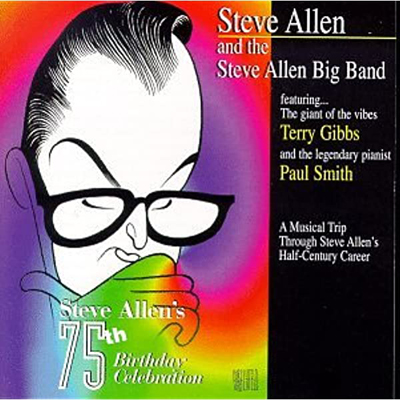
Steve Allen's 75th Birthday Celebration (1997). Smith shares piano duties with Allen, among many other performers. Available digitally.
A pair of Discovery 45 singles (both 1949):
"It Never Entered My Mind"/"Wait Til You See Her"
"It Can't Be Wrong"/"When Love Comes"All are available digitally on the compilation David Allyn: Where You At? -- '41-'63.
A pair of Discovery 45 singles (both 1950):
"The Touch of Your Lips"/"I Can't Believe That You're in Love with Me"
"Did You Ever See a Dream Walking"/"I Can't Believe That You're in Love with Me"All are available digitally on the compilation David Allyn: Where You At? -- '41-'63.
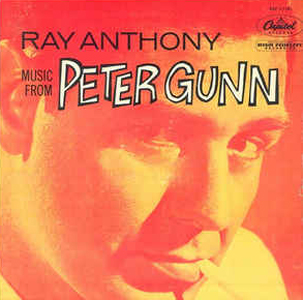
Capitol Records 45 singles:
"Sign Post"/"Air Express" (1954)
"I Don't Hurt Anymore"/"Cat Dancin' " (1954)
"Rockin' Through Dixie"/"Bullfighter's Lament" (1955)
"Hornblower's Serenade"/"Baby You" (1955)
"Juke Box Special"/[Smith not involved] (1955)
"Big Band Boogie"/[Smith not involved] (1955)
[Smith not involved]/"The Lonely Trumpet" (1957)
"Peter Gunn"/"Tango for Two" (1958)Saddle Shoe Shuffle (1954 EP). One track" "Midnight Curfew."
Swingin' on Campus (1955). Four tracks: "Chloe," "This Lady's in Love with You," "Undecided" and "What Can I Say (After I Say I'm Sorry)."
Swing Fox Trots (1955). Four tracks: "Can't Get Out of this Mood," "I've Never Been in Love Before," "Let's Get Lost" and "On the Sunny Side of the Street."
Big Band Dixieland (1956). All tracks. Available digitally, along with numerous additional tracks (not involving Smith), as Dixieland Swing.
Standards (1956). Four tracks: "All of You," "Night and Day," "Pennies from Heaven" and "'S Wonderful." Not to be confused with the CD compilation Ray Anthony Plays the Standards, which is entirely different.
Jam Session at the Tower (1956). Three tracks: "How High the Moon," "One O'Clock Jump" and "Perdido." Available digitally.
Daddy Long Legs (1956 EP). Three tracks: "Dream," "Sluefoot" and "Something's Gotta Give."
The Girl Can't Help It (1956 EP). One track: "Big Band Boogie."
Ray Anthony Plays for Dream Dancing (1956). Four tracks: "I Only Have Eyes for You," "I'll Never Smile Again," "Out of Nowhere" and "This Love of Mine." Available digitally, paired with Anthony's Plays for Dancers in Love (which doesn't involve Smith).
Moments Together (1958). All tracks. Available digitally, paired with Anthony's Dream Girl (which doesn't involve Smith)
Anthony Italiano (1959). All tracks.
Sound Spectacular (1959). Smith shared keyboard duties with John(ny) Williams (unknown who played on which tracks).
Like Wild! (1959). Smith may have played some of the tracks on this album; the personnel are unknown. Available digitally, paired with Anthony's Plays Steve Allen (which doesn't involve Smith).
Music from Peter Gunn (1959 EP). Again, Smith may have played the tracks on this EP; all four were recorded in a single session, but the personnel are unknown.
Quite a few of Smith's recordings with Anthony were unissued by Capitol, and remain unreleased to this day: "Bunny Hop Boogie," "The Bells of Verona," "Blue," "Blues Theme," "Golden Sunbeams," "Goodbye Rome," "Goodnight Ladies," "Groovin' Along," "Havana Moon," "In My Heart," "Moon Dreams," "Moon Tide," "My Love," "My Song," "Pavane," "Regret," "The Shadows," "Silver Threads and Golden Needles," "Swan Lake," "Tonight We Love," "Vanguard," "Walk to the Ring" and "Who Can Tell?"
Under the Stars (1958), as a member of the Russell Garcia Orchestra. Available digitally.I've Got the World on a String (1960), as a member of the Russell Garcia Orchestra. Available digitally.
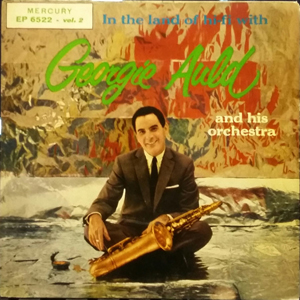
Mercury 45 single:
"You Are My Sunshine"/"Margie" (1956)In the Land of Hi-Fi (1956), as a member of Auld's orchestra. Available digitally.
Dancing in the Land of Hi-Fi (1956). All but two tracks -- "Back Home in Indiana" and "Rosetta," done by Andre Previn -- as a member of Auld's orchestra. Available digitally. [One of this album's recording sessions, on April 12, 1956, included two additional tracks -- "Blues in the Night" and "Our Love Is Here to Stay" -- that Mercury never issued.]
Rhythm 'n Blues (1956 EP). All four tracks: "Cherry Pink (And Apple Blossom Wine)," "Jam Up," "Plantation Boogie" and "Rib Tips," as a member of Auld's Octet.
Skylark 45 single:
"Let Me Hear You Say I Love You"/"Crazy Crazy" (1953), backed by the Paul Smith Quartet, with Tony Rizzi (g), Sam Cheifetz (b) and Irving Cottler (d).
Accompanied during performances; no known albums.
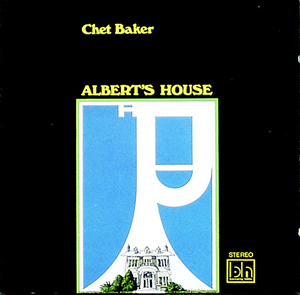
Albert's House (1969). Smith plays piano and organ in a quintet featuring Baker (t), Barney Kessel (g), Jim Hugbart (b) and Frank Capp (d). Available digitally.
Capitol Records 45 singles:
"Elaine (Gitane)"/"Cornflakes" (1953).All four tracks are on Baxter's 1955 album Kaleidoscope, so it's possible Smith played on the rest.
"Tropicana"/"Julie" (1953).
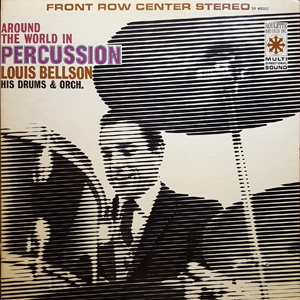
Around the World in Percussion (1961).
Accompanied during performances; no known albums.
Capitol Records single:
"Money"/[Smith not involved] (1954), as a member of Billy May's Orchestra
Sings Guess Who? (1963). Smith arranged and conducted, and plays piano in an 11-piece backing band. Available digitally.How Great Thou Art (1967). Smith conducted; unknown if he also played. Available digitally.
In a Metal Mood: No More Mr. Nice Guy (1997). Four tracks: "Crazy Train," "It's a Long Way to the Top (If You Wanna Rock 'n' Roll)," "Smoke on the Water" and "The Wind Cries Mary," among scores of other musicians. Available digitally.
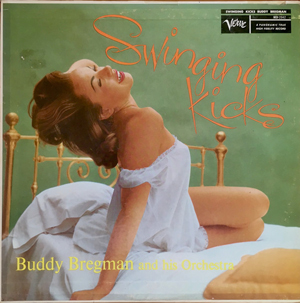
Swinging Kicks (1957). Five tracks: "Honey Chile," "Kicks Swings," "Melody Lane," "Melody Room" and "Melodyville." Available digitally.
The Girl I Love (2001). Smith backs Brown on solo piano. Available digitally.
Mambo Jambo (1951). Smith shares piano duties with Sonny Burke.The Uncollected Sonny Burke and His Orchestra: 1951 (1981). All tracks. Available digitally.
Capitol Records 45 single:
"The Big Top"/"St. Louis Blues-Boogie" (1954).
Accompanied during performances; no known albums.
RCA Victor 45 single (1952).
"Wanna Go Home"/"You Belong to Me"
Both songs, along with "Georgia On My Mind," recorded during the same session, can be found on 1979's Benny Carter (1928-1952) compilation album, available digitally.
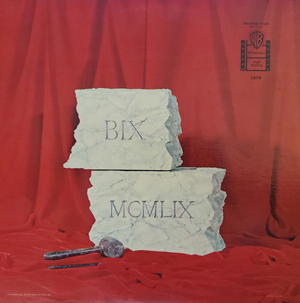
BIX MCMLIX (1959). Eight tracks: "At the Jazz Band Ball," "Candlelights," "Ida, Sweet as Apple Cider," "In a Mist," "Jazz Me Blues," "Louisiana," "Riverboat Shuffle" and "Sweet Sue, Just You," as part of a large ensemble.
Porgy & Bess (1976). Smith shares piano duties with Ralph Grierson. Available digitally.
Capitol Records 45 single:
"Magazines"/[Smith not involved] (1954), as a member of Pete Rugolo's Orchestra.
Something Cool (1956). One track: "Midnight Sun," as a member of Pete Rugolo's Orchestra. Both are available on the 1991 digital re-release of Something Cool.
Love (1963). Smith shares piano duties with Donn Trenner, as part of Nelson Riddle's Orchestra. Available digitally.Smith also accompanied her on tours.
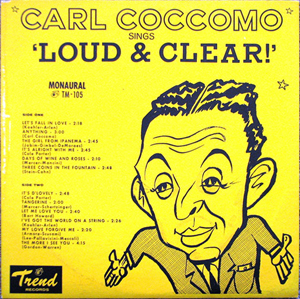
Loud & Clear (195?), accompanying the vocalist with trio members Wilfred Middlebrooks (b) and Frank Capp (d).
Capitol Records 45 singles:
"Livin' with the Blues"/"I'm No Angel" (1958), as a member of the Billy May Orchestra.
"A Man Could Be a Wonderful Thing"/"He Like It! She Like It" (1958), as a member of the Billy May Orchestra.
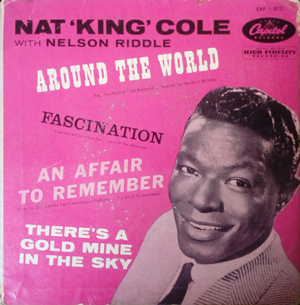
Sings Ballads of the Day (1953). One track: "My One Sin." Available digitally.Nat King Cole with Nelson Riddle (1954). Digitized as part of The Complete Nelson Riddle Studio Sessions (2017).
Nat King Cole with Billy May (1957). Five tracks: "Blue Moon," "With You on My Mind," "Don't Try," "Send for Me" and "Let's Make More Love." Digitized as part of The Billy May Sessions (1993).
Capitol Records singles:
"Send for Me"/[Smith not involved] (1957)Six Nat King Cole recordings with Smith on piano went unreleased until being digitized in various compilations years later: "I'll Always Be Remembering," "I'll Never Settle for Less" and "United," recorded August 24, 1954; and "Blue Moon," "Don't Try" and "Let's Make Love (I Want Your Love)," recorded May 14, 1957.
"The Song of Raintree County"/"With You on My Mind" (1957)
"Orange Colored Sky" (1961, as a member of the Stan Kenton Orchestra)/[Smith didn't played on side B]
"Wanderlust"/[Smith not involved] (1964)
[Smith not involved]/"L-O-V-E" (1964)
"Marnie"/"More and More of Your Amor" (1964)
Capitol Records single:
Bozo at the Dog Show (1954), a children's record, as a member of the Billy May Orchestra.
1962 (1969).
Jam Session with Eddie Condon (1957). Smith wrote the liner notes (but did not play).
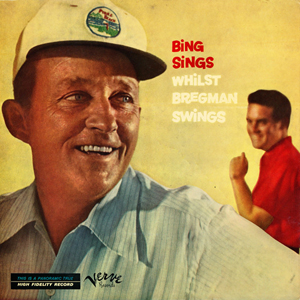
Bing Sings Whilst Bregman Swings (1956). Available digitally.A Southern Memoir (1975). Smith arranged and conducted, in addition to his piano work in the 12-piece band. Available digitally.
Bingo Viejo (1975).
Decca 10-inch 78RPM shellac[Smith did not play on side A]]/"Tallahassee" (1947)
The Happy Bachelor (1959). Smith backs Crosby with one quartet and two different quintets. Available digitally, paired with Crosby's Belts the Blues (which does not involve Smith).
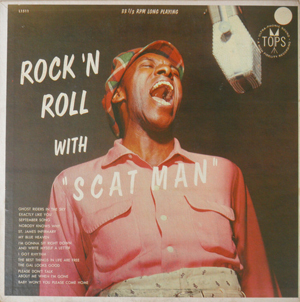
Rock 'n' Roll with "Scat Man" (1956). Smith heads a combo featuring Babe Russin (ts), Al Hendrickson (g), Larry Breen (b) and Jack Sperling and Milt Holland (d). Available digitally.
Hollywood Directory (1965). Smith shares keyboard duties with Buddy Cole and Curtin, in a combo that features Tommy Shepard (tb), George Hyde (French horn) and Andy Kostelas (sax and flute).
Smith spent four years as pianist and conductor for Davis' live shows, from 1972-76, but they made no albums together.
You Go to My Head (1957). Smith shares piano duties with Benny Payne and Jimmy Rowles, as members of Benny Carter's Orchestra. Available digitally.
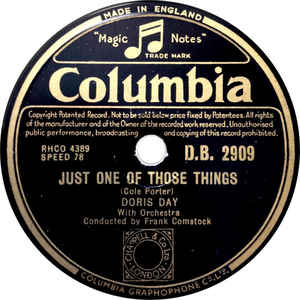
Lullaby of Broadway (1951). Three tracks -- "Just One of Those Things," "Please Don't Talk About Me When I'm Gone" and "You're Getting to Be a Habit with Me," as a member of the Frank Comstock Orchestra. Available digitally."My whole career was based on an eight-bar solo I played on [that] Doris Day date," Smith recalled, in a 1996 San Diego Union-Tribune interview. "I'll never forget it, 'Just One of Those Things.' It was strictly a vocal album, but it happened to have those little eight bars in it, and I gave them my all. Frank Comstock, an old San Diego High buddy, hired me for the job, and one of the people who heard it was Paul Weston, who was the head of Columbia Records at the time ... he's the guy who really got me started in this town."
Closed Session (1957). One track: "My Blue Heaven" (as Irving Garner).I Hear Benny Goodman and Artie Shaw (1957): Three tracks: "Cross Your Heart," "Indian Love Call" and "Medley: Dancing in the Dark/Moonglow/Time on My Hands" (as Irving Garner). Available digitally.
Buddy DeFranco Plays Artie Shaw (1957). Three tracks: "Frenesi," "Stardust" and "Summit Ridge Drive" (as Irving Garner). Available digitally.
Fascinating Jazz (1994). Two tracks: "Fascinating Rhythm" and "Have You Met Miss Jones," in a trio featuring DeJulio (d) and Chris Trujilio (percussion). Available digitally.
At the Fat Man's 1946-48 (1993). Smith plays on 13 of the 20 tracks on this digital release.
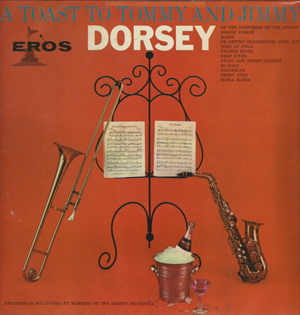
A Toast to Tommy and Jimmy Dorsey (1959). Smith shares piano duties with Milt Raskin. Available digitally.
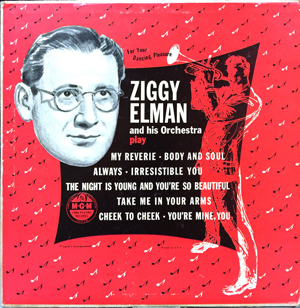
Four tracks recorded on 12/18/47: "Hub-je-de-bee," "My Reverie," "The Night Is Young and You're So Beautiful" and "Take Me in Your Arms."Four tracks recorded on 12/21/47: "Always," "Bublitchki," "Irresistible You" and "You're Mine, You."
Most were released as MGM 10-inch 78RPM shellacs; all but "Hub-je-de-bee" and "Bublitchki" were re-released on Elman's 1951 LP, Play for Your Dancing Pleasure, which is available digitally.
Frances Faye in Frenzy (1961). Eight tracks: "Heat Wave," "I Cried for You," "Miserlou," "Out of This World," "Shortnin' Bread," "South of the Border," "Temptation" and "Toreodor," as a member of Russ Garcia's Orchestra. Available digitally, paired with Faye's Swinging All the Way (which does not involve Smith).
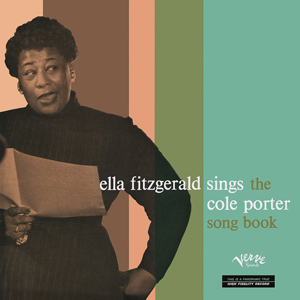
Here Come the Girls (1956). Two tracks: "It's Only a Man" and "Too Young for the Blues." ["Stay Here" and "The Sun Forgot to Shine This Morning," recorded during the same 1/25/56 session and also featuring Smith, were released as singles.]Sings the Cole Porter Songbook (1956). Smith plays on all tracks except for "Night and Day," as a member of Buddy Bregman's Orchestra. Available digitally.
Sings the Duke Ellington Songbook (1957). Smith shares keyboard duties with Oscar Peterson, as a member of Ellington's Orchestra. Available digitally.
Sings the Irving Berlin Songbook (1958), as a member of a studio orchestra conducted by Paul Weston. Available digitally.
Sings the George and Ira Gershwin Song Book (1959). Smith shares keyboard duties with Lou Levy, in an orchestra conducted by Nelson Riddle. Available digitally.
Sings the Rodgers and Hart Song Book (1959), as a member of the studio orchestra conducted by Buddy Bregman. Available digitally.
Get Happy! (1959). Four tracks: "Blue Skies," "Cheerful Little Earful," "Somebody Loves Me" and "The Swingin' Shepherd Blues" (the latter a bonus track on 1998's digital reissue), in studio orchestras conducted by Nelson Riddle and Paul Weston.
Ella in Berlin: Mack the Knife (1960). Smith fronts a quartet featuring Jim Hall (g), Wilfred Middlebrooks (b) and Gus Johnson (d). Available digitally.
Sings Songs from the Soundtrack of "Let No Man Write My Epitaph" (1960). Fitzgerald is backed solely by Smith, on an album later re-titled The Intimate Ella. Available digitally.
Sings the Harold Arlen Song Book (1961), as a member of a studio orchestra conducted by Billy May. Available digitally.
Twelve Nights in Hollywood (1961). The fourth disc in a 2009 digital compilation: actually an unreleased Verve album of 12 live tracks from a June 1962 gig at LA's The Crescendo, with Smith heading a trio featuring Wilfred Middlebrooks (b) and Stan Levey (d).
Sings the Jerome Kern Songbook (1963), as a member of a studio orchestra conducted by Nelson Riddle. Available digitally.
Sings the Johnny Mercer Songbook (1964). Smith heads a quintet featuring Plas Johnson (ts), Willie Smith (as), Buddy DeFranco (cl) and Frank Flynn (v). Available digitally.
Dream Dancing (1978). One track: "Love for Sale," as a member of a studio orchestra conducted by Nelson Riddle. Available digitally.
Digital III at Montreux (1980). Two tracks: "Flying Home" and "I Don't Stand a Ghost of a Chance with You," with Smith heading a quartet that features Freddie Green (g), Keter Betts (b) and Micky Roker (d). Available digitally.
The Lost Berlin Tapes (2020). A 1962 performance at Berlin's Sportpalast, backed by the Smith's Trio, featuring Wilfred Middlebrooks (b) and Stan Levey (d). Discovered in 2020.
Porgy & Bess (1959). Eight tracks: "Bess, Oh Where's My Bess," "Bess, You Is My Woman Now," "I Got Plenty o' Nuttin,'" "It Ain't Necessarily So," "Oh Lawd, I'm On My Way," "Summertime," "There's a Boat Dat's Leavin' Soon for New York" and "A Woman Is a Sometime Thing," as a member of a studio orchestra conducted by Russell Garcia. Available digitally.
Ella and Basie: A Perfect Match (1980). As a member of a large ensemble on all but the final track, "Basella," which features Basie on piano. Available digitally.
Capitol Records singles, as a member of the Billy May Orchestra:
"The Honeymoon's Over"/"This Must Be the Place" (1954).
"Somebody Bigger Than You And I"/"There Is Beauty in Everything" (1954).
"River of No Return"/"Give Me Your Word" (1954).
"Eins, Zwei, Drei (One, Two, Three"/"Losing You" (1954).
[Smith not involved]/"Have You Seen Her" (1954).
"I Am a Pilgrim"/"His Hands" (1955).All are gathered digitally on The Capitol Singles 1953-1955 (2020).
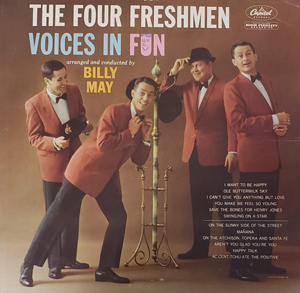
Voices in Fun (1961), as a member of the Billy May Orchestra. Available digitally, paired with the album First Affair (which does not involve Smith).
Capitol Records singles, as a member of the Billy May Orchestra:
"How Wrong Can You Be"/[Smith not involved] (1954).
"I Was Meant for You (The Wah-Wah Song)"/"They Tell me" (1954).The latter two are gathered digitally on The 4 Knights: Jivin' and Smoothin', Original Recordings 1951-1959 (1997).
The Four Knights (1959). One track, "The One Rose (That's Left in My Heart)," as a member of the Billy May Orchestra.
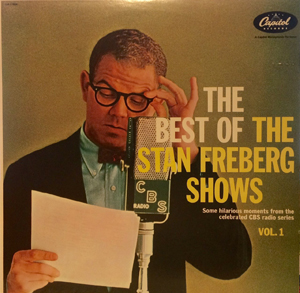
Capitol Records singles, as a member of the Billy May Orchestra:
"The Lone Psychiatrist"/"The Honey Earthers" (1955).
"Nuttin' for Christmas"/"The Night Before Christmas" (1955).
"The Great Pretender"/"The Quest for Bridey Hammerschlaugen" (1956)
A Child's Garden of Freberg (1957), as a member of the Billy May Orchestra. Three tracks: "Wide-Screen Mama," "The Great Pretender" and "Sh-boom."
The Best of the Stan Freberg Shows, Part One (1958), as a member of the Billy May Orchestra.
The Best of the Stan Freberg Shows, Part Two (1958), as a member of the Billy May Orchestra
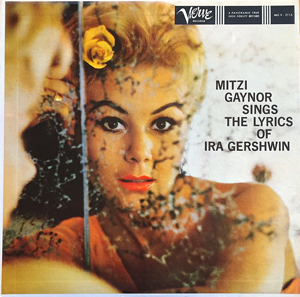
Sings the Lyrics of Ira Gershwin (1959). Smith shares keyboard duties with Jimmy Rowles, in a large ensemble directed by Russell Garcia. Available digitally.
Dizzy Gillespie Plays, and Johnny Richards Conducts (1950). As part of the Johnny Richards Orchestra. Six of the eight tracks are available digitally on 2001's four-disc box set, The Dizzy Gillespie Story.
Benny Goodman with Strings (1953). One track: "Embraceable You."
"By the Fireside," "Farewell Blues," "Toodle-Lee-Yoo-Doo" and "Who?," all recorded June 13, 1951. The first two are gathered on numerous digital compilations."Orange Colored Day," recorded July 6, 1961, went unreleased.
[All Benny Goodman entries are contradictory and therefor suspect.]
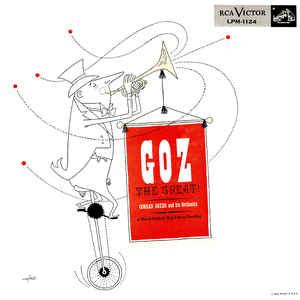
Goz the Great (1955), as a member of various small combos. Available digitally.
Steve Allen Presents Linda Guymon (1978), backing her alongside Barney Kessel (g) and Frankie Capp (d). Available digitally.
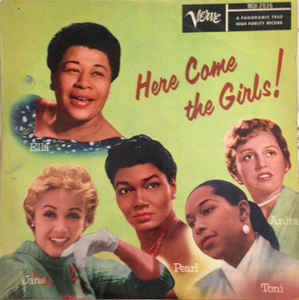
Here Come the Girls! (1957). Three tracks -- "I Telephoned, I Telegraphed," "Love Is a Wonderful Thing" and "We've Got to Live, Got to Grow" -- as a member of the Buddy Bregman Orchestra.A fourth track from the same session, "My Memory Book," is included in the 2014 digital compilation Toni Harper: Lost Voice. A fifth track from the same session, "I'm Getting the Message," remains unissued.
Jimmie Haskell's French Horns (1967), as a part of a backing septet.
Mr. Smith and I (2001). Smith backs Hicks on solo piano. Available digitally.
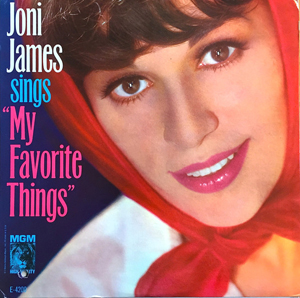
Sings My Favorite Things (1964). Seven tracks: "Falling in Love with Love," "The Gentleman Is a Dope," "I Didn't Know What Time It Was," "My Favorite Things," "This Can't Be Love," "Wait Till You See Her" and "A Wonderful Guy," leading a backing quintet. Smith also arranged and conducted. Available digitally.Sings the Gershwins (1964). Six tracks: "Bidin' My Time," "Love Walked Right In," "The Man I Love," "Nice Work if You Can Get It," " 'S Wonderful" and "They Can't Take That Away from Me," leading a backing quintet. Smith also arranged and conducted. Available digitally.
This Must Be the Plas (1959), as part of a combo featuring Johnson (as/ts); Tony Rizzi (g); Morty Corb (b); and Alvin Stoller (d). Available digitally.
Have Harp Can't Travel (1959). Smith shares piano duties with Jeff Lewis, as a member of the Stanley-Johnson Orchestra.
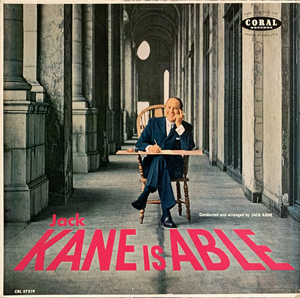
Kane Is Able (1958). Eight tracks: "Alfern Song," "Carioca," "Clare's Tune," "I'm Getting Sentimental Over You," "Lazy River" "Poor Butterfly," "St. Louis Blues" and "Some of These Days," as a member of Kane's Orchestra.
Dancing on the Ceiling (1957). Seven tracks: "Begin the Beguine," "Boogie for a Nickel," "Dancing Tambourine," "Flying Home," "Isn't It Romantic," "Jug Stop and "Mimi."
Capitol Records single, as a member of the Stan Kenton Orchestra:
"Theme from Splendor in the Grass"/"Officer Krupke" (1961)
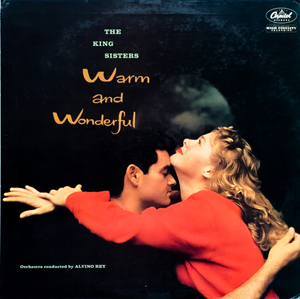
Warm and Wonderful (1959), as a member of the Alvino Rey Orchestra. Available digitally, paired with Imagination (which does not involve Smith).
Following his brief tenure as a member of The Four Freshmen, on three 1955 Capitol Records studio dates -- March 11, April 13 and July 12 -- Kratzsch recorded 12 songs as a solo vocalist under the pseudonym "Hal Curtis," backed by Buddy Baker and His Orchestra, which included Smith. Capitol elected not to release the results, and the tracks presumably exist only in a vault somewhere.
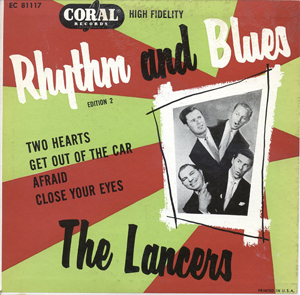
Rhythm and Blues (1955 EP). All four tracks: "Afraid," "Close Your Eyes," "Get Out of the Car" and "Two Hearts," backing The Lancers vocal group, as a member of a combo that features Georgie Auld (ts), Quentin Andersen (tb), Joe Estren (bs), Bud Shank (as), Tony Rizzi and George Van Eps (g), Phil Stephens (b) and Irv Cottler (d).
Sparky's Magic Echo (1952 10-inch 78RPM children's record), as a member of the Billy May Orchestra.
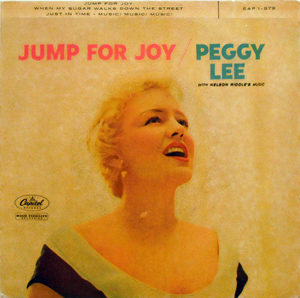
Capitol Records singles, as a member of the Billy May Orchestra:
[Smith not involved]/"So Far, So Good" (1951)Jump for Joy (1958), as a member of the Nelson Riddle Orchestra. Five tracks: "Ain't We Got Fun," "Cheek to Cheek," "Four or Five Times," "The Glory of Love" and "Jump for Joy." Available digitally.
[Smith not involved]/"Tonight You Belong to Me" (1951)Both are available digitally.
Decca single, as a member of John Scott Trotter's Orchestra (1952)
[Crosby solo; Smith not involved]/"Little Jack Frost, Get Lost." Available digitally.
Remember (1965), as a backing quartet with Dick Nash (tb), Manny Klein (t) and Gene Cipriano (woodwinds). Available digitally.
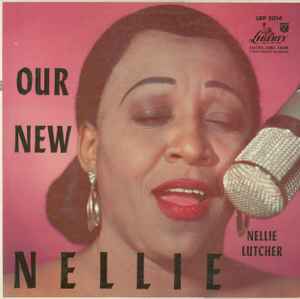
Our New Nellie (1956). Five tracks: "It Had to Be You," "The Nearness of You," "On the Sunny Side of the Street," "Someone to Watch Over Me" and "This Can't Be Love," in a backing septet featuring Cappy Lewis (t), Red Norvo (v), Barney Kessel and Ulysses Livingston (g), Mike Rubin (b) and Alvin Stoller (d). Available digitally.
Capitol Records single, as a member of the Billy May Orchestra:
"I'm Going to Sit Right Down and Cry Over You"/"Forever Is Now" (1954)
Two additional tracks -- "Merci Beaucoup" and "'Leven Thirty Saturday Night" -- were recorded during the same session, but remain unreleased.
Capitol Records 45 single:
"You Were Made for Love"/[Smith not involved] (1959), as a member of the Gus Levene Orchestra.Three more songs recorded during the same session -- "Once Upon a Time (It Happened)," "Outta My Mind" and "The Magician" -- remained unreleased until being included as bonus tracks on the 2005 digital re-issue of 1958's This Is Dean Martin.
Accompanied during performances; no known albums.
Mathis Magic (1979). One track: "New York State of Mind." Available digitally.
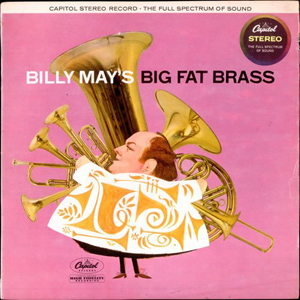
Capitol Records 45 singles:
"Hi-Fi"/"The Song Is You" (1954).Billy May's Naughty Operetta! (1954). Originally released as an eight-track 10-inch LP; re-issued later that year as an 11-track standard LP. Available digitally.
"The Breeze and I"/"Whistle Stop" (1954)
[Smith not involved]/"Bill and Sam" (1954)
"Young at Heart"/"Lemon Twist" (1954)
"Hernando's Hideaway"/"Anything Can Happen Mambo" (1954)
"Rudolph the Red-Nosed Reindeer Mambo"/"Loop de Loop Mambo" (1954)
"Suzette"/[Smith not involved] (1955)
"How Important Can It Be?"/"Let It Happen" (1955)
"The Cha Cha Cha (Arthur Murray Cha Cha)"/"Shaner Maidel" (1955)
"Oklahoma"/"Por Favor" (1955)
"Christopher Columbus"/"Floater" (1956)
[Smith not involved]/"Nightmare" (1956)
"The Man with the Golden Arm"/"The Phonograph Song (Our Melody)" (1956)
"Whatever Lola Wants"/"Just Between Friends" (1957)
"Seventy Six Trombones"/"Young and Dangerous" (1957)Sorta May (1955). Available digitally.
Billy May's Rico Mambo Orchestra: Arthur Murray Cha-Cha Mambos (1955). Five tracks: "Ain't She Sweet," "The Cha Cha Cha (Arthur Murray Cha Cha)," "Cha Cha Bamer," "Ya Ya Ya, Cha Cha Cha" and "Mama Inez."
Billy May's Richo Mambo Orchestra: Mambos (1955). Two tracks on the re-issue of this 1951 10-inch LP: "Chopsticks Mambo" and "Mais Oui Mambo."
Sorta Dixie (1955). Smith plays piano, celesta and calliope. Available digitally.
Dance to the Bands (1956). Billy May's Orchestra, including Smith, is one of the many outfits on this anthology album. May's contributions are "Suddenly," "Mad About the Boy" and "Fascinating Rhythm."
Billy May Plays for Fancy Dancin' (1956). Six tracks: "It Happened in Monterey" "Say It Isn't So," "Be Honest with Me," "Stumbling," "Bye Bye Blackbird" and "You Turned the Tables on Me."
Billy May's Big Fat Brass (1958). Available digitally.
Billy May's Bacchanalia! (1985). This re-issue of a 1953 10-inch LP adds four tracks recorded with Smith back in 1955: "Pick Yourself Up," "Accent on Youth," "Show Me the Way to Go Home" and "It's the Natural Thing to Do." (Smith wasn't involved with the original release.)
Numerous songs including Smith, during various recording sessions, were not issued and remain unreleased to this day: "The Wailers," "Franck," "The Merry Month of May," "King Porter Stomp," "Trees" and "How About."
McKuen Country (1976). Smith shares piano duties with Pete Jolly, Lincoln Mayorga and Leslie Pearson. Available digitally.
Johnny Mercer Sings Just for Fun in Stereo (1956). Backed by the Paul Smith Trio (sidemen unspecified). The digital version includes numerous demos with Mercer backed by Hoagy Carmichael and Andrew Previn.
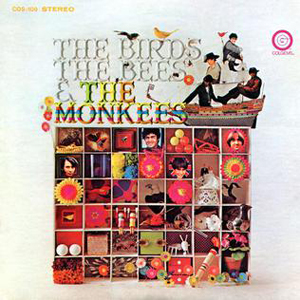
The Birds, the Bees and the Monkees (1968). One track, on tack piano: "Magnolia Simms." Available digitally.
Capitol Records 45 single:
"An Occasional Man"/"Birmingham" (1955), as a member of the Billy May Orchestra.
Mister Clarinet (1955). In a quintet that features Most (clarinet, flute), Tony Rizzi (g), Joe Mondragon (b) and Larry Bunker (d).
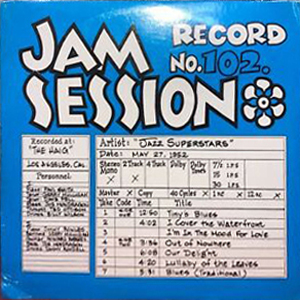
Jam Session Record No. 102 (1952). Two tracks: "I Cover the Waterfront"/"I'm in the Mood for Love" and "Tiny's Blues," in a sextet with Mulligan and Dave Pell (ts), Ted Ottison (t), Joe Mondragon (b) and Billy Wilson (d). Available digitally under the title Gerry Mulligan: Jam Session!
The Uncollected Ozzie Nelson and his Orchestra 1940-42 (1977). Four tracks: "Autumn Nocturne," "Cutting Classes," "Jersey Jive" and "Texas Jump." Available digitally.
Nero Fiddles (1951). In a quintet that features Nero (violin), Tony Rizzi (g), Ray Leatherwood (b) and Jack Sperling (d).
Skylark Records 45 single:
Jam Session: "Sweet Georgia Brown"/"Cool Canary Blues" (1952). In an octet with Nero (violin), Maynard Ferguson (t), Bob Cooper (ts), Abe Most (cl), Tony Rizzi (guitar), Stan Fletcher (b) and Irv Cottler (d).
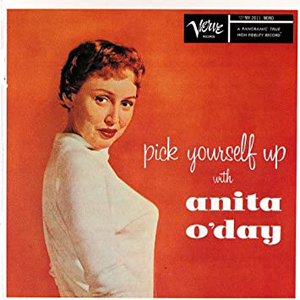
Anita (aka This Is Anita, 1956), as a member of the Buddy Bregman Orchestra. Available digitally.Pick Yourself Up with Anita O'Day (1957), as a member of the Buddy Bregman Orchestra. The digital version includes nine bonus tracks.
Anita O'Day Sings the Winners (1958). All the tracks on LP Side B, as a member of the Russell Garcia Orchestra. Available digitally.
Anita O'Day Swings Cole Porter with Billy May (1959). One bonus track -- "You're the Top" -- on the 1991 digital reissue, as a member of the Buddy Bregman Orchestra.
Capitol Records 45 singles, as a member of Billy May's Orchestra:
"Please Have Mercy"/"These Are the Things We'll Share" (1955).
[Smith not involved]/"Open the Door" (1955)
Galloping Guitars (1951 10-inch LP): "Begin the Beguine," "Blue Skies," "Dark Eyes," "Dream Dust," "Guitar Boogie" and "Steel Guitar Rag," as a trio with Paul (g) and Bob Meyer (b). The 1997 digital compilation Les Paul: The Trio's Complete Decca Recordings (1936-47) includes two previously unreleased bonus tracks with the same trio: "Caravan" and "Somebody Loves Me."[YouTube videos that claim Smith was part of the Les Paul combo that recorded "Short Circuit," "Swanee River," "Lazy River" and "Wasted Tears" probably are incorrect.]
A 2/13/47 recording sessions produced "Gotta Get Me Somebody to Love," "What Am I Gonna Do About You" and "Drifting and Dreaming (Sweet Paradise)," with Crosby backed by Paul and Cal Gooden Jr. (g), Bob Meyer (b) and Smith (p). The first two were issued as a 1947 Decca single, the third on a 1949 Decca 10-inch LP, Drifting and Dreaming. All are available digitally in various Crosby compilations.
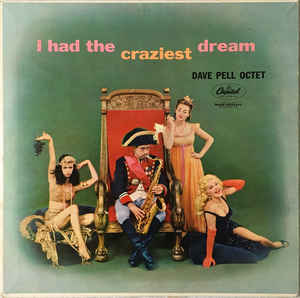
The Les Brown All Stars (1955). Three tracks: "Klump Jump," "Mike's Peak" and "Poopsie," as a member of the Dave Pell Octet, alongside Pell (ts), Bob Gordon (bs), Don Fagerquist (t), Ray Sims (tb), Tony Rizzi (g), Joe Mondragon (b) and Jack Sperling (d). Available digitally.I Had the Craziest Dream (1957). As a member of the Dave Pell Octet, alongside Pell (ts), Bob Gordon or Ronnie Lang (bs), Don Fagerquist (t), Ray Sims (tb), Tony Rizzi (g), Rolly Bundock (b), Jack Sperling (d) and Roy Harte (bongos). Available digitally.
The Big Small Bands (1960). Three tracks -- "Jumpin' with Symphony Sid," "Viva Zapata" and "Dark Eyes" -- as a member of the Dave Pell combo, alongside Pell (ts), Jack Sheldon (t), Bob Enevoldsen (vib), Bobby Gibbons (g), Red Mitchell (b) and Frank Capp (d, bongos). Smith must not have been happy with the results, as he hid behind his occasional pseudonym, "Art Flickriter."
Can't We Be Friends (1956). As a member of the Buddy Bregman Orchestra. Available digitally.
Complete Capitol Years 1956-1960 (2013). Smith apparently was present in one or more of her backing orchestras; no details given. Available digitally.
Capitol Records 45 single:
[Smith not involved]/"Basin Street Blues" (1955), as a member of the Dennis Farnon Orchestra.
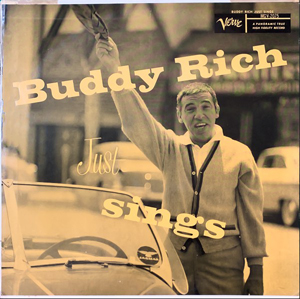
Buddy Rich Just Sings (1957), in a backing sextet that features Harry Edison (t), Ben Webster (ts), Howard Roberts (g), Joe Mondragon (b) and Alvin Stoller (d). Available digitally.
Crazy in Love (1957), as a member of the Billy May Orchestra. Available digitally.
A Tribute to Artie Shaw (1959). Four tracks: "Frenesi," "Moonglow," "Stardust" and "Temptation." Available digitally.
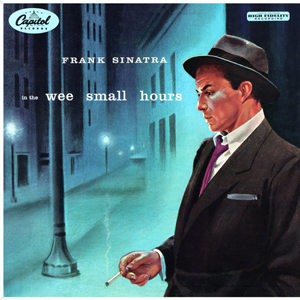
In the Wee Small Hours (1955). Eight tracks: "Can't We Be Friends," "Dancing on the Ceiling," "Glad to Be Unhappy," "I See Your Face Before Me," "I'll Be Around," "Ill Wind," "Mood Indigo" and "What Is This Thing Called Love," with Smith playing celeste as a member of either a rhythm quintet -- with Bill Miller (p), George Van Eps (g), Phil Stephens (b) and Alvin Stoller (d) -- or Nelson Riddle's Orchestra. Available digitally.
Capitol Records single:
"Melody of Love"/"I'm Gonna Live Till I Die" (1955).Both songs, along with "Sea Song" (recorded with the Nelson Riddle Orchestra, also with Smith) are gathered on the 1996 Sinatra digital anthology, The Complete Capitol Singles Collection.
Capitol Records 45 single:
"S'posin"/"The Song Is You" (1965), as a member of the Billy May Orchestra.Keely Smith recorded two more songs during this session -- "On the Sunny Side of the Street" and "I'll Get By (As Long As I Have You" -- which remained unreleased for decades, along with several more songs recorded with the Billy May Orchestra (including Paul Smith) during two additional 1958 sessions: "I'll Never Smile Again," "Sweet and Lovely," "All the Way," "Lullaby of the Leaves," "East of the Sun (and West of the Moon)," "I Can't Get Started," "Cocktails for Two" and "I Never Knew." All of them, along with the two songs on the single above, finally were digitized and included in the 2008 compilation release, The Very Best of Keely Smith.
Stuff Smith: Cat on a Hot Fiddle (1959). Three tracks: "Blue Violin," "Take the A Train" and "Undecided," backing Smith as a trio, with Red Mitchell (b) and Sid Bulkin (d). Available digitally.
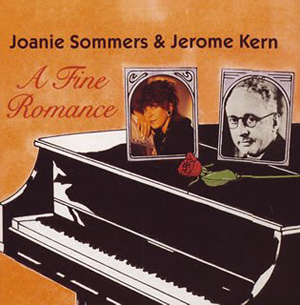
A Fine Romance (1993). As a backing trio with Jim DeJulio (b) and Frank Capp (d). Available digitally.
Jeri Southern Meets Cole Porter (1959). Eight tracks: "I Concentrate on You," "Get Out of Town," "Which," "After You," "It's Bad for Me," "You're the Top," "Let's Fly Away" and "Don't Look at Me That Way."
Outstanding Records 45 single:
"Blue"/"You Need Love" (1968), with Smith on organ.Spira was a vocal student of Smith's wife.
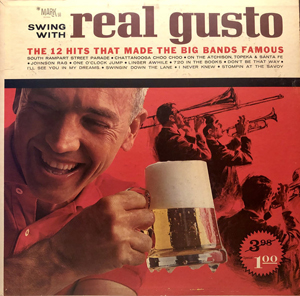
Swing with Real Gusto: The 12 Hits That Made the Big Bands Famous (1962). Re-titled Frank Comstock and His Orchestra: 1962 for a 1969 re-release.